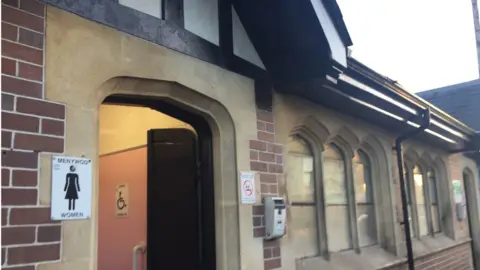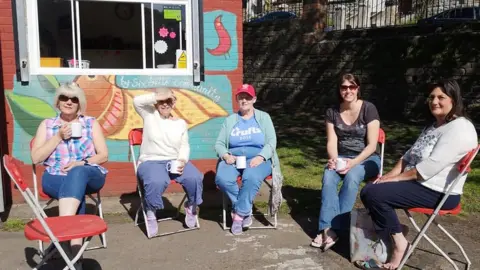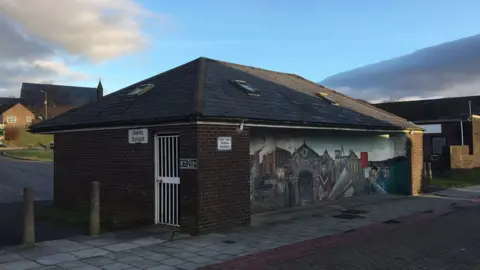Public toilets 'absolute necessity', politicians are warned
 BBC
BBCPublic toilets must be taken seriously by politicians and treated as essential infrastructure in towns and cities, campaigners have said.
A new law to help save loos in England and Wales from closure by scrapping business rates stalled when Parliament was suspended.
The British Toilet Association said public facilities were a "human right" and urgent action was needed.
The UK government said it hoped to reintroduce the law when MPs return.
Raymond Martin from the association said he had sat on panels where MPs had trivialised public toilets and called for a change in attitude, saying they were vital for health, dignity and decency.
"They need to stop blaming councils. These things are an absolute necessity," said Mr Martin.
"I do not want a world where people are defecating in the street because they can't find a toilet."
Councils are responsible for running public toilets, but there is currently no legal duty for them to provide the facilities, and many have been shut as local authorities try to cut costs.
In Wales - where local government is devolved - more than 100 public toilets have closed in recent years.
Some have since reopened, after being taken over and run by community groups including mums, grandmothers and taxi drivers, while other empty buildings have been sold and turned into cafes.

What do they cost to run?
Currently those who run non-domestic properties - including public toilets - pay business rates, the level depending on their rateable value.
Some councils have given community groups exemptions for taking over and running toilets, while others are too small to pay the rates and are exempt.
But Mr Martin said some towns had seen many of their public toilets close due to the business rates, with some responsible in major cities having to pay thousands of pounds a year to run them.
The Non-Domestic Rating Public Lavatories Bill, promised in the 2018 autumn budget, would have meant anyone running public toilets in England and Wales would not have had to pay business rates.
When Parliament was prorogued, the bill was one of a handful making their way through the legislative process which was dropped, and there is no guarantee the bill will be reintroduced when MPs return.
In theory the Welsh Government could introduce its own legislation as it is a devolved matter, with the assembly having to give consent for the UK bill to be introduced.
In a statement the Welsh Government said it was disappointed the bill had been lost and would be pushing for it to be reintroduced.

'We took over the loos'
 Lynne Pratten
Lynne PrattenFaced with closure some in Wales have banded together to take over the running of their public toilets.
The Friends of Six Bells Park group, a group aged from 10 to 73 in Abertillery, Blaenau Gwent, has brought the newly refurbished park's toilets back into use, so old and young people could enjoy their time there without the worry of being caught short.
"Having the toilets makes it so much more accessible for everyone," said mum Lynne Pratten.
When Blaenau Gwent council closed all of its public toilets in November 2013, councillor Wayne Hodgins felt he had to act, and took on the management of a block in Brynmawr.
"We have a lot of elderly people - if someone arrives on a bus and we've got no toilet facilities, it would be quite ridiculous," he said.
And in Caerphilly a group of taxi drivers took over the Station Terrace toilets, after they were shut by the council in April, amid protests from residents.
David Miller, one of the taxi drivers, said: "We have the second largest castle in Europe - for people to arrive and not be able to find a toilet anywhere, we thought it was wrong".

 Paul Fosh
Paul FoshCouncils in Wales are required to produce a toilet strategy, assessing local needs and working with businesses and other organisations to find solutions, under a public health law.
But there are fears that with councils trying to make increasing cuts, there may be more closures on the horizon.
A spokeswoman for the UK Ministry of Housing, Communities and Local Government, said: "We will seek to reintroduce the bill as soon as Parliamentary time allows."
